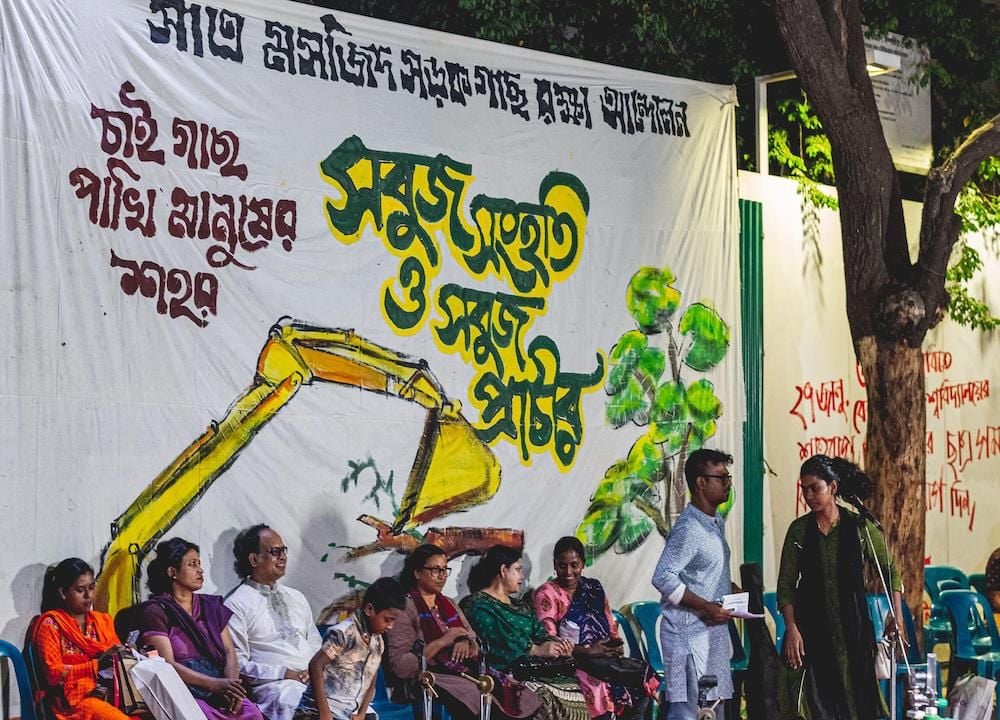The satirical article Dhaka’s mayor has tried to ban
The mayor of Bangladesh’s capital city and a powerful member of the ruling party attacks media freedom.

A journalist put it well. “When you can’t tolerate an innocuous satire, you don’t have any right to hold a public office.”
The journalist was referring, of course, to Sheikh Fazle Noor Taposh, the mayor of the Dhaka South City Corporation, and powerful relative of Prime Minister Sheikh Hasina, who earlier this month sent a legal notice to the English language paper, The Daily Star, demanding that it pays him, within seven days, Taka 1 billion ($9.2 million) for allegedly defaming him in a satirical article titled “Cutting down trees to make way for air”. He also ordered the paper to remove the article.
The article, part of the newspaper’s weekly Satireday articles, lampooned the City Corporation’s decision earlier to cut down 600 trees in the middle of Satmasjid Road in Dhanmondi.
“See, the capital is like a jungle. Too many trees everywhere. They are occupying too much space and this is resulting in low amounts of air and wind. We need bigger spaces for air and wind to pass through, and cutting the trees will give us that space,” the satirical article quoted the fictitious “Dhoka South Mayor Faposh Dhur”, a lightly disguised reference to the actual Dhaka mayor.
A few days before the satirical article was published, Taposh had earlier apologised for his corporation’s decision to cut trees: “We are very sorry that the trees had to be felled. We tried to keep as many as we could. They were cut down because there was no other way.”
His apology, however, did little to cool heads of protestors with one reported to have said: “We denounce such unthoughtful, insensitive, profit-seeking, and short-sighted development. This is destruction and not development.”
Is this what the Awami League means when it refers to supporting freedom of expression? A governing party politician suing a newspaper over a satirical article about his views on the environment. And seeking a sum of money — Taka 1 billion — that, if paid, would necessarily cause the closure of the newspaper.
Mahfuz Anam, the editor of The Daily Star, quite rightly pointed out that the newspaper article “was a satirical piece, which is a globally accepted and common practice in journalism, on an issue of urgent public concern.”
Seeking Taka 1 billion is particularly brazen of the Awami League politician, as who knows whether his reputation is worth much these days. He was recently reported by the media to have said at a meeting of governing party lawyers, “I wish I could resign and come back here [at the Supreme Court Bar Association]. I know where to use the hammer. We had even removed a chief justice… The civil society members, who want to preach to us, we will bundle them in a sack and throw them into the dark water of the Buriganga [river].”
The demand of the mayor — who in Bangladesh’s nepotistic political hierarchy can only be countermanded by the prime minister or one of her closest family — has already had a chilling effect, with the newspaper removing the online version of the satirical article.
Taposh’s success at getting a newspaper to remove an article — and through a threat of a legal suit, bringing the existence of one of the country’s main English language papers into question — should, arguably, make him one of the first subjects of the United States new election visa restriction policy, which allows the US State Department to restrict the issuance of visas for “any Bangladeshi individual, believed to be responsible for, or complicit in, undermining the democratic election process in Bangladesh”, including the “use of measures designed to prevent the media from disseminating their views.”